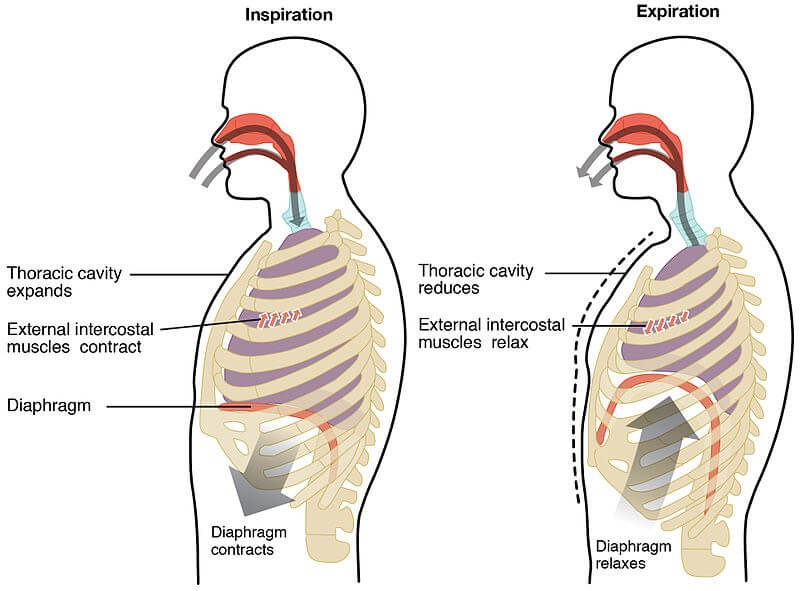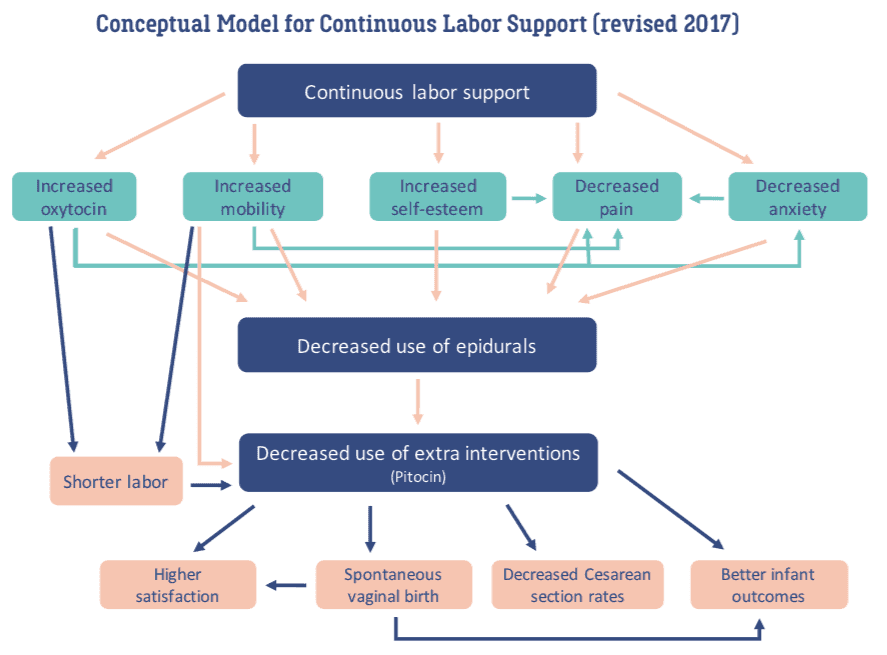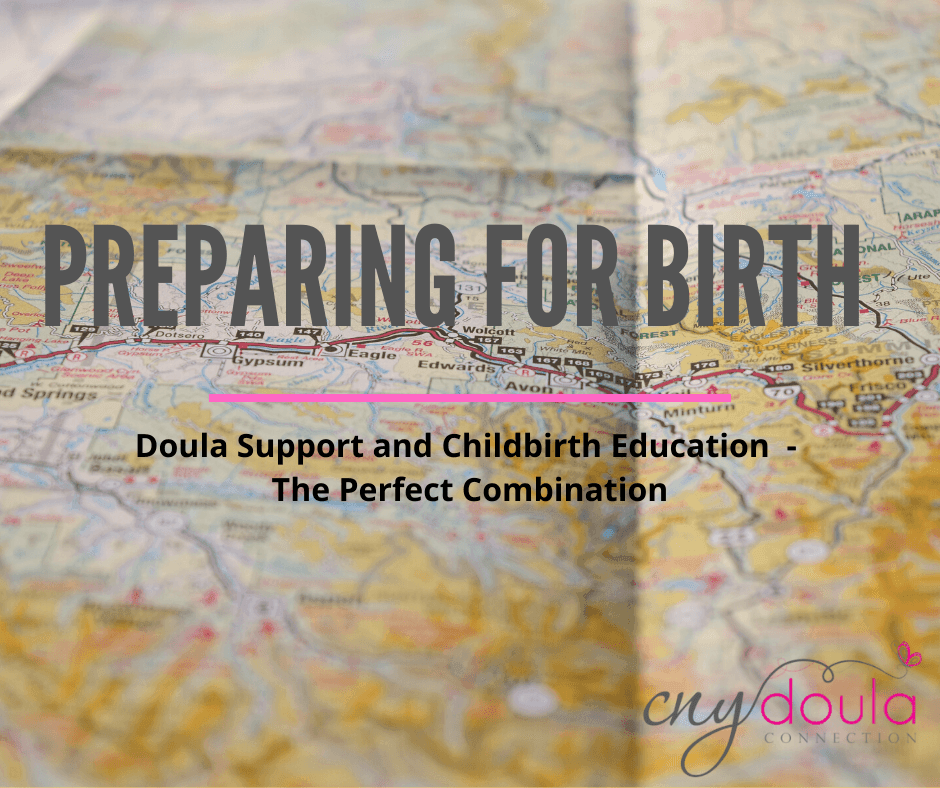|
You've had a busy day. I mean, A. Really. Busy. Day!! You woke up this morning, ran out the door to work or you were woken up by your toddler, bright and early, to begin the daily duties of parenthood, or both. But now, you finally catch a moment to yourself to breathe and you realize you haven't felt the baby kick. Or you were just too busy to take notice? Some panic sets in but so does your logic. You tell yourself the baby is ok; when you're busy that means the baby is being lulled to sleep with all that coziness and movement. Whether you are keeping track or not, there is a natural feeling of pause if you haven't given this little one inside you some attention. At the end of pregnancy providers ask you to keep track of baby’s movements everyday. This is called the Kick Count. It helps you learn your baby’s patterns and helps you to be mindful of any changes that might occur. You want to be able to feel 10 movements within a two hour timeframe. Reality brings you back and you become fully aware you haven't paid attention to kick counts. You barely drank the suggested water intake for pregnancy nor have you even had a moment to stop and take a break. You begin to worry a little more, asking yourself, “How can I settle my brain and body NOW?! How can I relax enough to check on my baby?” You know the baby always does acrobats especially when you are finally ready to go to sleep yourself. You hope the baby starts during summersaults, so your mind can be put at ease. You try to relax as you lay down on the couch, but the baby is still quiet. The Mini Light Strategy This is when you pull out your handy-dandy mini mag light (or some sort of pen light) and bring it to your belly. You slowly move the light around waiting for the baby to notice the contrast of light and darkness within. It was once thought that babies could not see in utero but, alas, they do see in that cozy nest you’ve given them. And, this sweet baby, who was sleeping so comfortably, while you were a busy beaver, gives you a really nice swift kick! It takes your breath away. It actually hurt a bit but the relief you feel never felt so good. You move the flashlight to another part of that peaceful home and the baby gives you another kick, and then another. They are not so abrupt as the first, but these feel just as good and you can finally relax. You’ve had a day and this is now the best part; being able to spend one-on-one time with this little one growing inside. Using a mini flashlight is also a great tool to use when your partner wants to share in the experience of your baby’s movements too. Your partner can be the one to move the flashlight while you relax and enjoy the bond you’ll forever share together. You can also share in the delight of watching your partner’s expression when they first realize they are the cause of baby moving. Or, in my experience, it was the joy of witnessing my teen niece who loved the “100 thousand, million kicks” she just created in my peaceful belly and gleefully declared to her mother. This excited me for when, one day, she also will experience feeling her own baby’s movements. Get your Baby Moving, Literally Some other ways to get baby to move include:
As a doula, using a mini light is just one of several favorite tools I share from the litany of information from my personal birth catalog. Sharing and imparting information such as this is like my hug to you so you can have a fulfilling experience bringing baby earthside. Enjoy those baby kicks! Rosmyn SquitieriBirth and postpartum doula
0 Comments
We. Are. Here. Nowhere else. Root yourself, now, into whatever surface you’re on: floor, grass, mat, table, chair, sand. Press your feet down, push through your toes. Take a breath in. Close your eyes. Loosen your jaw and your fingers. Unlace the abdominals, relax as you breathe in, relax as you breathe out. The marvel of moments like these is that it doesn’t take much to become connected with where we have all come from: the natural world. It takes a moment to feel disconnected, though, and that’s the flip side of the coin here. Here are 3 ways that you can reconnect with earth in the month of April (and beyond)…
1. “Identification of an Immune-Responsive Mesolimbocortical Serotonergic System: Potential Role in Regulation of Emotional Behavior,” by Christopher Lowry et al., published online on March 28, 2007 in Neuroscience. http://www.sage.edu/newsevents/news/?story_id=240785 Mind & Brain/Depression and Happiness – Raw Data “Is Dirt the New Prozac?” by Josie Glausiusz, Discover Magazine, July 2007 Issue. https://discovermagazine.com/2007/jul/raw-data-is-dirt-the-new-prozac 2. https://www.ncbi.nlm.nih.gov/pmc/articles/PMC6589172/ Rebecca S. Alexander Carey, PT, DPT, E-RYT/YACEPRebecca is one of our local physical therapists specializing in women's reproductive health and also teaches local prenatal yoga classes. The relationship between breathing and our pelvis is not widely known, yet the coordination of these areas serves a vital role for many things that we do, and ways that we move. It’s especially important to have harmonious function here before, during, and after pregnancy. The pelvis houses the “pelvic floor”, which is composed of three separate layers of muscles that sit like a bowl inside of the pelvis and are surrounded by connective tissue (fascia). These muscles help in supporting all bowel, bladder, and sexual functions. The pelvis is also home to vital organs including reproductive viscera (uterus, cervix, ovaries), bladder, urethra, and rectum. Function or dysfunction in this region of the body depends upon the health of our pelvic floor muscles- and their function relies on how we breathe. Read that again: how we use the bathroom, move, and engage intimately (should we choose to) is related to how our pelvic floor muscles work. And how well our pelvic floor muscles work depends on how our breathing works. Wondering how? Allow me to explain: When we inhale, air moves into the lungs at the same time that the diaphragm muscle- located at the bottom of the ribcage- begins to move down. This helps to create more space inside of the ribcage for the lungs to expand. When we exhale the opposite happens: the lungs deflate, so the diaphragm muscle moves upward to its resting position. See the below image. How does this relate to the pelvic floor muscles, you might ask? Take a deep breath, then keep reading. The pelvic floor sits parallel to the diaphragm muscle and way down below it (in the pelvis), so when you take a breath in (picture on left) your pelvic floor moves in the same direction: downward. On the exhale? You guessed it: upward. This relationship serves to impact how we perform other things besides breathing at rest. For example, it impacts how we cough, jump, run, sneeze, or stand from a chair. When there are big pressure changes that happen and the diaphragm muscle is involved (say, when you cough)- the pelvic floor should move in the same direction as the diaphragm. Often for reasons unknown, our pelvic floor muscles don’t always coordinate with the breathing diaphragm muscle. They may lower downward on an exhalation, a jump, or a cough and this can push a small (or large) amount of urine out (called incontinence or leaking). The medical term for this is “stress incontinence”. The incontinence occurs because of a change in pressure in the abdomen, and the muscles aren’t coordinated when this pressure change happens. The pelvic floor muscles may also play a role in urinary frequency or urgency, constipation, pelvic pain, tailbone pain, hip pain and/or prolapse. If any of the above sounds familiar, know that you are not alone! Also: I want you to know that there are specialists who work with patients to treat symptoms just like yours. Just because something is common doesn’t mean it is “normal”, nor does it mean it is something that can’t be improved! Too often incontinence gets normalized or laughed off. We are told kegels are the only solution, or we feel that after a certain age or stage of life that intimacy with a partner may not be feasible. Pelvic floor rehabilitation is a specialty practice area of physical therapy that focuses on the musculature that sits inside of the pelvis. We evaluate patients as a whole, incorporating lifestyle, diet, movement, and functions into our assessments. We strategize to build a comprehensive plan, partnering with our patients to meet goals. Often, this treatment begins with using our breath, and incorporating the diaphragm muscle. The utilization of healthy diaphragmatic breath coordinated with movement of the pelvic floor is a key component to maintaining health. Our pelvic floor is the base of our core and trunk, and it assists with stability during walking, running, sitting, squatting- any movement! If you want to start incorporating your diaphragmatic/pelvic floor breath into a daily routine, here are some tips I use with patients:
On the in breath: peace On the out breath: love
Generally, first time moms go their entire pregnancy going with the flow. They tend to not dote too much about getting information aside from answers to the questions they pose to their provider. Then after going through labor and delivering their beautiful baby, there is something about which they express, “Why didn’t anyone tell me about x, y, or z?” Kathryn knows she did. She would joke during her first pregnancy that she was going to back up into the hospital like a big truck beeping and pointing to the general area an epidural would go. She had no information. No statistics. No insight aside from the opinions and stories of, “labor is awful, it’s painful, don’t be a hero, get the epidural.” However her own experience would humble her and change her entire approach to her own future labors. Hindsight led her to wish she had known about CNY Doula Connection’s Birth Basics meetings. CNY Doula Connection’s monthly Birth Basics is a great place to fill in the blanks in regard to various topics pertaining to pregnancy, labor, birth, and all things postpartum. This should be prefaced that these are by no means a comprehensive childbirth education class. We encourage everyone giving birth to attend childbirth education classes. Most hospitals provide a childbirth education class, however we recommend a private childbirth education class as it can cover various things other than those of the hospitals, which includes all the choises you have during your labor and immediate postpartum period. Feel free to reach out to CNY Doula Connection for more information on the classes we offer! Join Us! Birth Basics are monthly classes held on the second Monday of each month from 6:00-7:30 PM at CNY Fertility Center in Syracuse. We cover topics such as tips for a low intervention birth, getting off to a good start breastfeeding, infant sleep, natural pain management techniques, postpartum mental health, postpartum physical health, and even a doula speed dating for those interested in hiring a doula but are not sure where to start. These classes are great because they are short, to the point, and full of information that you will not typically get from a provider. Frequently, at the end of a prenatal appointment, your care provider will ask you if you have any questions. Sometimes, it is hard to have specific questions about any of the given topics when put on the spot. It is nice to be able to attend and simply listen and absorb the information that may be answering questions you don’t even realize you have. The classes give a different array of information. We often hear from clients that they feel as though they were taught by the hospital/provider how to be a good patient with few of their true questions answered. These short meetings are an opportunity to ask those questions that apply, and receive a well-rounded answer. It’s also an opportunity to meet other families, possibly in the same stage as you, to relate with. Pregnancy, labor, birth, postpartum can feel so isolating. Yet you know you aren’t the only one to experience. But each experience is incredibly unique, it is nice to have a small group to bounce ideas off of, get opinions on something, or simply acknowledge the understanding of the flow of this stage of life. As a bonus: these meetings are FREE! CNY Doula Connection’s monthly Birth Basics gives you the opportunity to have that much more information on any given topic so families can make informed decisions on what is right for them from pregnancy straight through the postpartum period. They provide families with the peace of mind that come with feeling empowered and knowledgeable in their decisions surrounding their birth. Come check us out! We look forward to meeting you! Kathryn GarceauBirth and postpartum doula Sherri Morris
Informed consent is defined at "permission granted in the knowledge of possible consequences, typically that which is given by a patient to a doctor for treatment with full knowledge of the possible risks and benefits."
The CNY Doula Connection strongly believes our clients have the right to use informed consent when making decisions in their pregnancy, birth and postpartum periods. We educate all families we work with to use the BRAIN acronym when having conversations with their providers and researching their options. When using the BRAIN acronym we ask ourselves these 5 questions:
We encourage clients to use informed consent throughout their lives when making any type of decision that requires weighing the benefits and risks. So what does informed consent have to do with sleep training you ask? Well nearly all pediatricians will recommend, at some point, that parents sleep train their babies. Pediatricians, like many medical providers, will often only present the benefits of any type of intervention to parents, stating that there are no risks to said intervention. Sleep training is no different. It is an intervention...and it has benefits and risks. Let's apply the concept of informed consent to sleep training. The following infographic includes clickable links to research and articles and can help you determine if sleep training your child is right for your family. If after looking at the research and weighing the benefits and risks you decide sleep training is NOT the best option for your family, please feel free to reach out to our certified Infant Sleep Educator and trained Baby-Led Sleep Coach Sherri Morris for support in how you can get more sleep without sleep training!
Citations
[1]http://ncbi.nlm.nih.gov/pmc/articles/PMC5962992 [2]https://www.thebabysleeppractitioners.co.nz/blog/the-biggest-mismatch-human-babies-vs-western-child-rearing [3] https://pubmed.ncbi.nlm.nih.gov/21517171/ [4] https://pubmed.ncbi.nlm.nih.gov/21517171/ [5]http://www.childwitnesstoviolence.org/uploads/2/5/7/9/257929/higley._dozier_sleep_article1.pdf [6]https://www.nytimes.com/article/sleep-training-regression.html [7]https://pediatrics.aappublications.org/content/142/6/e20174330 [8]https://www.tandfonline.com/doi/abs/10.1080/03004430.2017.1378650?journalCode=gecd20 [9]https://www.aap.org/en-us/advocacy-and-policy/aap-health-initiatives/safe-sleep/Pages/Safe-Sleep-Recommendations.aspx [10] https://sarahockwell-smith.com/2017/07/24/the-rollercoaster-of-real-baby-sleep/ [11]https://www.cnydoulaconnection.com/postpartum-care.html [12]https://www.cnydoulaconnection.com/sleep.html [13]https://raisedgood.com/how-i-healed-my-postnatal-depression-without-sleep-training-my-baby/ Pelvic floor disorders are more common than you'd think and many women shy away from seeking help. We recently interviewed our friend, Dr. Danielle Corapi of Empowered Physical Therapy to learn more about what it's like working with a physical therapist for a happier, healthier pelvic floor. Tell me more about you-how did you get drawn to this work? My name is Danielle and I am a pelvic floor physical therapist, owner of Empowered Physical Therapy. First and foremost, I am a wife, mama to my daughter Rylee, and dog mom to our goldendoodle Graham! I graduated from SUNY Upstate and received my Doctorate of Physical Therapy in 2014. After graduation, I began working in outpatient orthopedics and then worked at multiple travel contracts across the country with my husband, who is also a physical therapist. Throughout the years, I had a handful of women's health patients either pregnant, early postpartum or many years postpartum. My patients were dealing with either pelvic pain, incontinence or other issues that can be found during pregnancy or postpartum. I loved working with these women but I always felt like I was missing a huge component when trying to rehab these patients, I knew I needed to learn more. This is when I started my training for pelvic floor physical therapy-and have continued to do so ever since! What exactly does the pelvic floor do? Your pelvic floor is a group of muscles that sit like a bowl within the pelvis and have three main functions: sexual, sphincteric- control bowel and bladder, and support- help to support all of the pelvic organs, intestines, bowel, bladder, (and baby when pregnant). The pelvic floor is also one part of four that makes up the “core”. The pelvic floor, diaphragm, abdominal muscles, and back muscles work together and form the “core”, they operate as a pressure system and allow all of us to move properly and provide stability. Although most think of the abdominals as the core, the pelvic floor muscles are an integral component. Why might I need pelvic floor therapy? There are SO many reasons why seeing a pelvic floor physical therapist may be useful. If your experiencing bladder and/or bowel incontinence, bladder and/or bowel urgency/frequency, pelvic pain which may include pain with sex, use of tampons, or with a gynecological exam. Many women seek out pelvic floor physical therapy while pregnant or postpartum due to the many issues that arise. Common reasons women seek out pelvic floor physical therapy during pregnancy and postpartum include all of the reasons above in addition to diastasis recti, c-section scarring, low back pain, mid back pain, and issues when returning to exercise/fitness. It may also be useful to seek out a pelvic floor PT preventatively before these issues come up, this is what I wish became more of the norm. Why don’t we hear more about the pelvic floor during pregnancy and birth? I wish I knew the exact reason so I could solve this! I think the biggest reason is that a lot of the focus gets put on having a healthy baby-which is obviously VERY important. However, there is not a lot of focus on having a healthy mama! Women's bodies go through SO many changes during pregnancy, birth and postpartum recovery. The pelvic floor alone can stretch up to 200% the amount during a vaginal delivery and there is significant trauma to the pelvic floor with a c-section. Every health care professional involved in the care of mama and baby has their own area of concern and specialty, I can only hope physical therapists can start being thought of as a crucial component of the team during this time! Are there some things that you recommend all women do to maintain healthy pelvic floors during pregnancy, and in the first year postpartum? Yes! I think one of the most important things is to improve awareness of the pelvic floor. Many women have no idea that they have a pelvic floor let alone how it functions. One exercise that I start everyone with is diaphragmatic breathing or belly breathing. The relationship between the diaphragm and the pelvic floor is crucial for proper function. As you inhale and take a deep belly breath in your pelvic floor relaxes and as you exhale the pelvic floor contracts. By performing proper breathing, the pelvic floor will move through its full range of motion which is crucial for proper function. To Kegel or not to Kegel? Kegels are not always the answer! The pelvic floor muscles, just like any other muscle, can be weak however they can also be shortened or tight. If the pelvic floor muscles are tight doing a kegel (contracting the pelvic floor) would not be helpful! It would be like doing a heel raise while having a calf cramp-ouch! Research also shows that most people are unable to perform a kegel with verbal instruction alone. The bottom line is that the pelvic floor is very complex and everyone deserves an individualized evaluation to determine what is really going on. For women who have experienced some pelvic floor weakening after giving birth, where do you recommend they even start? I would recommend that every woman start with learning how to perform a proper diaphragmatic breath and then adding a kegel (pelvic floor contraction) in coordination with the breath. As mentioned before, as you breathe in the pelvic floor relaxes and as you exhale the pelvic floor contracts. To perform this exercise, take a belly breath in and then on the exhale draw the pelvic floor up and in to contract the pelvic floor. As mentioned above, a proper kegel is hard to perform with verbal instruction alone, having proper cues from a pelvic floor PT can help to make sure you are activating the pelvic floor correctly and not compensating with other muscles. What can you expect from a pelvic floor therapy session with you? An initial evaluation includes review of your medical history, a functional movement examination, an internal pelvic floor examination performed intravaginally or intrarectally to see how the pelvic floor muscles are functioning, a conversation about your goals for physical therapy, answer any questions you have, and develop a treatment plan that is evidence-based, holistic, and individualized to address your goals. I really aim to make all of my patients feel comfortable, this is why I offer visits in your own home or in the office setting. I want to tailor my treatments to help you achieve your individualized goals. Thinking physical therapy would benefit you? Connect with Danielle and get started! Check out more from Danielle here Empowerdpt.com Archives April 2022 Sherri MorrisBirth and Postpartum Doula, Infant Sleep Educator As a new parent, sleep deprivation can hit you like a ton of bricks. Parents spend countless days up late at night, up early in the morning, and for many, up for hours with a baby who thinks the middle of the night is a great time to be awake! What’s a sleep deprived parent to do? Enter the overnight postpartum doula!
What is an Overnight Postpartum Doula? An overnight postpartum doula truly is the Fairy Godmother of the Night. She will take you from being overwhelmed, exhausted and stressed to being relaxed, well rested and ready to face the day. An overnight doula is an expert in caring for your baby overnight while you have a peaceful night’s sleep. Your doula will answer your questions and offer nonjudgmental advice to help you become more confident as a parent. She will take your disheveled kitchen and transform it, so you wake to a calm, peaceful place to drink your morning coffee. Your doula will help you catch up on the ever-growing pile of baby laundry. Sounds like a dream, right? What does a typical overnight look like? Every night looks a little different, depending on the needs of the family and baby, but an overnight doula’s schedule might look something like this: 9pm Your doula arrives, and she will spend some time discussing with you your day and answering questions you may have. 9:30pm You and your partner head to bed and your doula takes over care of your baby. At this point the doula may put your baby to sleep. 10-11pm This time is set aside for catching up on household tasks to assist you. Washing dishes or emptying the dishwasher, throwing in a load of baby laundry, picking up around the kitchen and living room, washing bottles and pump parts are typical tasks done. 11pm Now is quiet time for the whole house, including the doula who might try and rest during this time. 2am and 5am Baby wakes and doula will change the baby and bring the parent to nurse or she will bottle feed the baby. After the baby is done feeding, she will burp and put the baby back to sleep. If the baby is fussy during the night or awake, she will care for him so you can sleep. 5:30am Doula will finish up tasks for the night: washing any bottles used during the night, folding laundry that was washed, and when the parent wakes for the day a detailed schedule of the night’s events will be reported. How parent’s feel after hiring a postpartum doula ”We couldn’t have done it without the help of our doula. I was struggling with postpartum anxiety and depression and the lack of sleep was making things exponentially worse. I needed to get some sleep. Our doula came to our house three nights a week and when I woke in the morning I felt like Superwoman. She was so good to talk to. I was a first-time mom and felt so lost, I had so many questions and struggled with breastfeeding. She assured me that I was a great mom. She was so patient and answered all my questions. I’m so grateful for her support.” First time mom, Camillus “We loved our doula team! We had support five nights a week for the first three months after we had our second child. I knew as soon as I was pregnant that I wanted the extra support this time around because after we had our first child I was totally in over my head. We planned ahead to hire a doula and we were so lucky to have two experienced doulas to support our family. The thing I loved most about our doula team was that after my child’s birth I had some major complications with my recovery and our doulas cared for our baby like she was one of their own so I could get the rest I needed to recover. I tell all my friends about the amazing support I received from my doula team and recommend them to everyone.” Second time mom, Fayetteville Who are CNY Doula Connection’s overnight postpartum doulas? Currently the Doula Connection has four overnight postpartum doulas. Chris Herrera has been a postpartum doula for over a decade and is a mother to three children herself. She has specialized training in breastfeeding, belly binding and placenta encapsulation which are all beneficial in the postpartum period. Sherri Morris is a mother of 4 and has been a postpartum doula for 4 years. She is a certified infant sleep educator, has additional training in breastfeeding and is currently working on her Newborn Care Specialist certification. Roz Squitieri has been a postpartum doula for 14 years and a mother for 15 years. Sarah Kelchner just recently became certified as a postpartum doula is the proud mother of two young children. We would love to hear from you on how we can best support your family with your overnight sleep needs! What is a birth doula? Before we can address the value of a birth doula, we have to define what a doula is. According to DONA International a birth doula is a “trained professional who provides continuous physical, emotional and informational support to a mother before, during and shortly after childbirth to help her achieve the healthiest, most satisfying experience possible.” A lot of people confuse the roles of a midwife and doula. Although both are trained birth professionals they are vastly different. Which leads us into the next section… What does a birth doula do? Doulas work with their clients extensively during their pregnancy, preparing them for labor and delivery along with the postpartum period. They are a hub for other birth professionals (ie. chiropractic care, prenatal massage, prenatal yoga, maternal mental health professionals, etc.) and can direct their client to other avenues of pregnancy related resources. They give information, exercises to practice, techniques to use, and support to call on any time their client might need it. Doulas accompany the birthing person (and their partner/support person) in labor to help ensure a safe and satisfying birth experience. They draw on their professional training, knowledge and experience to provide emotional support, physical comfort and, as needed, communication with the staff to make sure that you have the information you need to make informed decisions as they arise. They provide reassurance and perspective to the womxn (and their partner), make suggestions for labor progress, and help with relaxation, massage, positioning and other techniques for comfort. A doula works for the birthing person, not the hospital or caregiver. This is an important indication because so many of the issues that arise in western style birth practices happen because the staff that is assigned to the birthing person is working for the hospital/birth site and has their own policies, procedures and agendas. When a person hires a doula, that doula’s priority is the wishes of their client. How does having a doula affect things? During labor the body is going through a huge number of changes. The cervix is opening, ripening, and thinning. The uterus is contracting. The baby is lowering down into the pelvis and TONS of hormones are being made. One thing that can really hurt a laboring mama’s progress is stress hormones. They can slow or even stall labor. Because of this it is a doula’s duty to keep the laboring woman as comfortable as possible so her body will be releasing the happy hormones (oxytocin) rather than the stress hormones (cortisol). The doula will suggest any number of things to keep the good hormones flowing. Some things may be: having music playing in the background to keep you focused and grounded, slow dancing with your partner, kissing your partner, massage or touch of your choosing, aromatherapy, accupressure, and even sex (yes, I said it). All of these things will help keep labor progressing and keep the mama-to-be happy and calm. The most basic outcome for all births is a vaginal delivery (the doula will help you write your wishes for all other birth options into a birth plan), however, doulas are also a great support for women planning a scheduled cesarean as well. Because of all the aforementioned suggestions, and many others, the likelihood of a cesarean dramatically decreases when a doula is present (decreases 32.2% according to DONA.org). From there, all of the other options of the birthing person’s labor/delivery are more likely to happen as well for a few reasons. First being that they have one more person on their team. A doula can advocate for a woman’s wishes during labor. Prenatally the doula and the client will go over, in detail, her birth plan. Secondly, having a doula will help impart information and resources that may not have been accessed if not for the doula (ie. webster certified chiropractic care, prenatal massage, prenatal yoga, perinatal psychiatry, etc). Having a doula will also decrease the likelihood of having to use any interventions. See the flowchart above. Photo taken from evidencebasedbirth.com, for illustrative purposes only. There are many reasons people choose to use a doula. Yours might be different than the next person’s and every reason is valid. If you want more information on doulas here are two very informative websites: https://www.dona.org/cesarean-rates/ https://evidencebasedbirth.com/the-evidence-for-doulas/ Written by: Coral DowslandCoral is one of the CNY Doula Connection's amazing birth doulas! Meet Coral by contacting the office to arrange a free consultation! It has been said that a doula is like a trail guide for birth - someone familiar with the culture and landscape who can act as a navigator, interpreter, and cheerleader, pointing out the breathtaking views as well as potential pitfalls along the way. If so, then taking childbirth classes is equivalent to studying the map and learning the language ahead of time. Beginning the journey armed with essential knowledge, the experience is authentically enriched. Rather than following blindly and awaiting interpretation a traveler, or birthing person, can become fully immersed in the experience, enjoying the powerful beauty of the process while easily sidestepping many complications.
While no one can predict the specific route or outcome of any individual birth, there are collective understandings, signposts, and techniques that can serve as tools for the journey. Childbirth education arms parents with the knowledge of what is normal and how to overcome or face variations - allowing them to focus on the true work of labor rather than trying to “wing it.” Prepared and educated parents come to the birth and postpartum experience equipped with strategy and confidence; they know what to do, what questions to ask, and how to make the choices most appropriate for their individual family. Giving birth is a physically, mentally, and emotionally exhausting process, full of unexpected challenges. In every delivery, the birthing person is required to reach down to the deepest places in themselves to bring forth strength they have never before known. A doula’s skill set provides irreplaceable support to the process, but no one can do this work for you - a doula can only stand by your side and show you the way. Who wouldn’t want to be as prepared as possible for this pivotal life experience? Common questions such as “How do I know when to go to the hospital?” “What do Braxton Hicks feel like?” and “How do I time contractions?” are all questions that are discussed in this class. You will feel fully prepared to give birth with confidence after this 6-week series. Sarah will be teaching a 6 week Hospital Birth class series on Saturdays from 10 am -12:30 pm, starting January 11. Each dynamic and interactive session covers an essential topic to prepare you and your family for pregnancy, labor, delivery, and the postpartum period. You will receive a beautiful full-color workbook highlighting the key points of each class, sized perfectly for slipping into your hospital bag for quick reference. Space is limited, so contact us today to reserve your seat. Gift cards for classes are also available upon request. Sarah teaches private and group childbirth preparation classes in the Syracuse, NY area. Sarah received her certification through Birth Boot Camp and the Bradley Method. Not only is Sarah a chilbirth instructor, but she is also one of the CNY Doula Connection’s amazing birth doulas! Curious about how a doula could help you? Read this past blog post: Should I hire a doula? Are you ready to sign up for Sarah’s class? Register here! Still have questions? No problem! Our office is available to answer your questions. by Sherri MorrisLabor and Postpartum Doula Family sleep is a huge concern for new parents. The KEY to getting your newborn baby to sleep longer and better is to mimic the sensations they experienced in the womb. As a postpartum doula for many years and newborn sleep educator, I have tried many products on the market. Some products have stood out to me as beneficial for most babies and may help your newborn sleep better as well.
Swaddles Newborn babies love to feel secure and swaddling is one way to mimic that feeling of being back in the womb. There are many different swaddling products on the market, or you can use an old-fashioned receiving blanket to swaddle your baby. My favorite method to swaddle babies is the Houdini Method, which is easy to do with blankets you already have at home. However my absolute favorite swaddle, The Miracle Blanket (miraclebabyusa.com/), is a swaddle that utilizes the Houdini Method. It may be a little tricky to figure out at first but once you get the hang of how to use it correctly babies will feel comfortable and secure. Instructions for use of the Miracle blanket can be found in this YouTube video. White Noise Many people believe that newborn babies need silence and those around them need to be very quiet while baby is sleeping. Parents are often unaware that babies generally sleep worse in quiet rooms because the womb was a very noisy place. Your baby has become accustomed to the sound of your blood rushing through the placenta, the gurgling sounds of your belly and intestines and the thumping of your heartbeat. If a newborn baby is sleeping in silence the very startling noise of the dog starting to bark, a doorbell ringing or someone dropping something onto the floor will usually wake them. White noise will drown out those sounds and usually babies will sleep blissfully through the most jarring of noises. Most white noise machines on the market are not quite loud enough in my opinion to get babies to sleep, but at their loudest setting are perfect for when baby is asleep. To remedy this, 2 white noise machines can be used simultaneously until baby falls into a deep sleep or you can download a white app onto your phone and increase or decrease the volume as your baby settles. My preference is an app called “White Noise Baby” which has many different types of noises to use with your baby and for you to find the one that works best. I have found many babies prefer the pink noise setting which is slightly higher in pitch than white noise. Darkness Your baby spent 9 months comforted by the noises and closeness of the womb. Once they are born, they are jarred by the brightness of this world. To encourage your newborn baby to sleep better and longer, a very dark room is comforting. Adults and older children might like a little light to make us feel secure while sleeping. Newborn babies can be stimulated by light while falling asleep or if they wake during the night. Use black out curtains or blinds (or both!) on your windows, covering or taping over any areas where light might awaken your baby, so that your baby will enjoy total darkness while sleeping. Movement While in the womb babies are lulled by the gentle movement of your daily activities. Have you even noticed while you were pregnant with your baby that their most active time was just as you were settling in for sleep at night? It’s no coincidence that when your movement stopped your baby woke up and decided to make their presence known! Babies love movement and are usually calmest when being rocked in your arms or in the swing, bounced gently over your shoulder or a baby carrier, or gently jostled in their stroller or their car seat while you’re driving. To help babies fall asleep and stay asleep longer movement and vibration is so beneficial. So, grab your carrier and wear your baby during naptime or spend some time rocking your baby to get them to sleep. A great newborn carrier I love is the Moby Wrap (www.mobywrap.com/shop/all-wraps) and when babies outgrow the Moby I like the LilleBaby soft structured carrier (www.lillebaby.com/collections/carriers). Dr Harvy Karp, author of two of my favorite books Happiest Baby on the Block and Happiest Baby’s Babies Guide to Sleep, shows his method to calming babies with movement in this YouTube video https://www.youtube.com/watch?v=sB2Fw3MFlhk Sleep close to baby Sleeping close to your baby has many benefits for both baby and parent. Newborn babies were used to spending every moment, safe and secure, close to their mother when she was pregnant. Babies do not realize that they are a separate being from their mother thus any far separation can cause babies to become stressed and unsettled while sleeping. The AAP recommends babies sleep in the same room with their parents for at least 6 months and ideally a year to help prevent SIDS. For parents, sleeping in the same room as their baby will allow for more sleep as they can quickly respond to their baby’s nighttime needs and makes overnight feeding much easier. There are many bassinets on the market to choose from. Some parents set up a pack and play in their room or even the baby’s crib, while others prefer a stand-alone bassinet. My favorite bassinet is the Snoo Smart Sleeper which features many of the calming techniques Dr. Karp suggests parents use to help babies soothe to sleep (https://www.happiestbaby.com/products/snoo-smart-bassinet). Although the bassinet is pricy the company often offers significant discounts on the Snoo and renting the Snoo is always an option as well. For more help If you are desiring more sleep for your family a postpartum doula can help! Postpartum doulas are available for daytime and overnight support to care for your baby while giving parents the opportunity to nap or have a full night’s sleep. Please see our website at http://www.cnydoulaconnection.com/postpartum-care. If you are concerned about your baby’s sleep or want to learn more about how to help your family sleep better, visit my Infant Sleep Education and Support page at http://www.cnydoulaconnection.com/sleep What are your favorite products to help your baby sleep better and longer? |
Details
CNY DoulasThe CNY Doula Connection's doulas write all about birth! Archives
June 2022
Categories |









 RSS Feed
RSS Feed